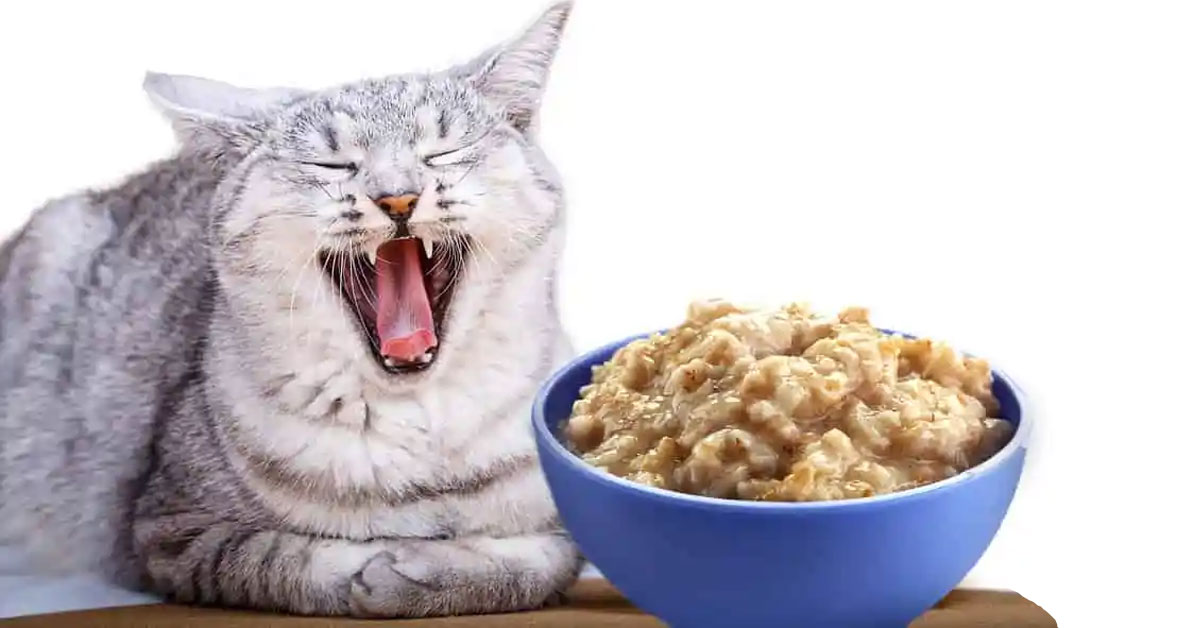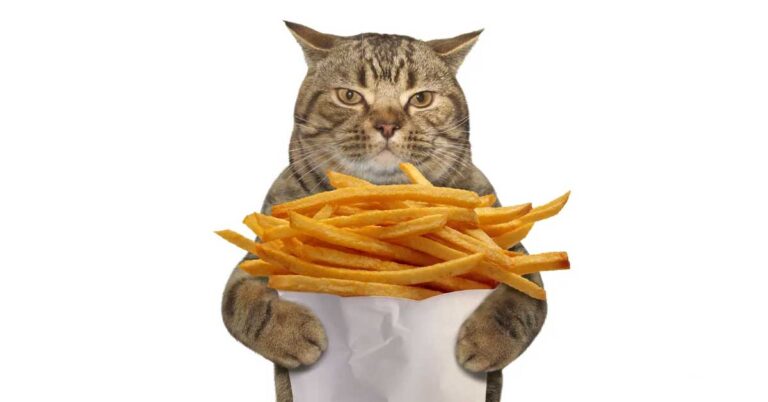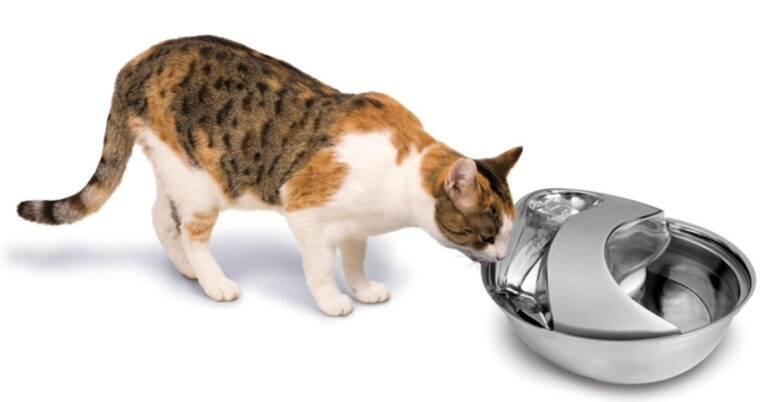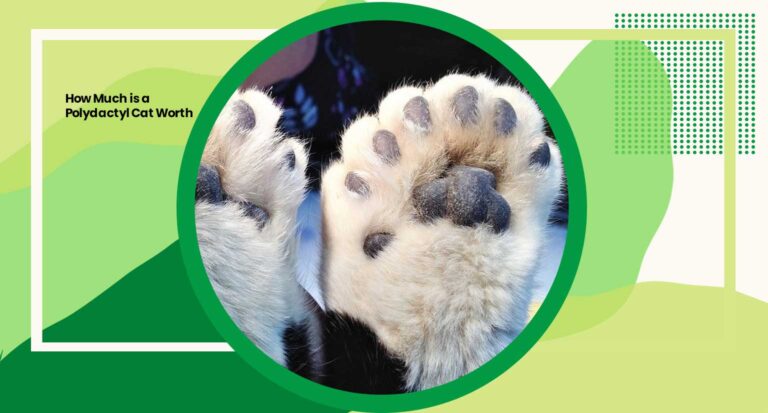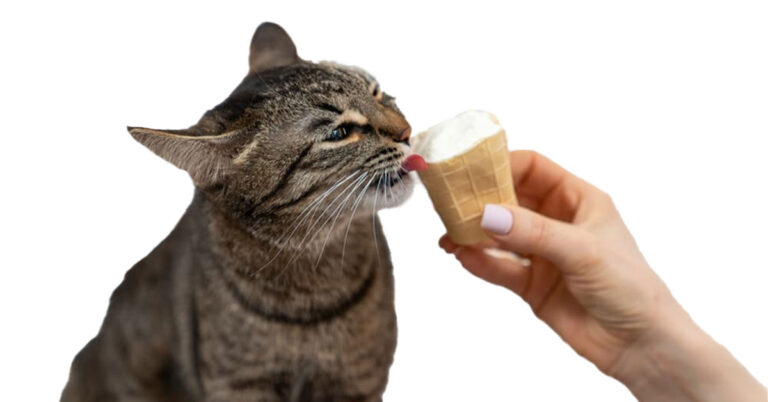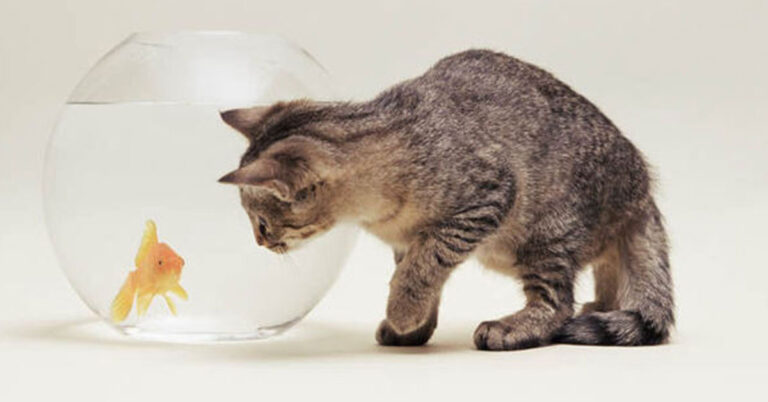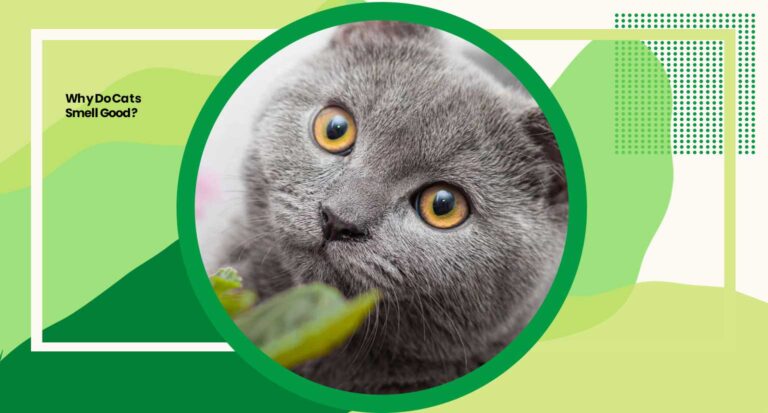can cats eat oatmeal
When it comes to our feline friends’ diet, many cat owners often wonder about the types of human food they can safely share with their pets.
One such food is oatmeal. The question that arises is: “Can cats eat oatmeal?” This article aims to answer this question and illustrate the potential benefits of oatmeal for cats.
Oats are rich in beneficial components, such as proteins, carbohydrates, dietary fiber, vitamins and minerals.
When prepared properly (without adding sugar or unhealthy condiments), they make a wholesome meal that can provide your cat with the necessary nutrition that cannot be derived from other foods. Furthermore,
What is Oatmeal?
Oatmeal is a type of porridge made from oats, a grain considered rich in fiber and nutrients. The oats are processed and then boiled with water or milk to create a warm, creamy dish often consumed for breakfast.
Oatmeal comes in various forms, including steel-cut oats, rolled oats, and quick oats, each offering different levels of texture and cooking time.
Its versatility allows it to be served plain or dressed up with fruits, nuts, or sweeteners. Beyond its function as a popular breakfast staple, oatmeal offers significant health benefits, making it a worthy addition to your cat’s diet.
Why Does It Appeal to Cats
Cats may find oatmeal appealing due to its texture and taste. The creamy consistency of well-cooked oatmeal might be a pleasant change from the regular dry or wet cat food.
Furthermore, the natural flavor of oats may be appealing to some cats, especially when mixed with their usual food.
Oatmeal can be an exciting addition to a cat’s diet, especially when used sparingly as a treat, and not as a staple food item.
Remember, every cat is different, and while some may enjoy the taste and texture of oatmeal, others may not show the same level of interest.
It’s essential to introduce new foods to your cat gradually and observe their reactions to ensure they enjoy it and do not have any adverse responses.
Is Oatmeal Safe for Cats to Eat
Yes, oatmeal is safe for cats to eat in moderation. It’s important to note that cats are obligate carnivores, which means their diet should be primarily composed of meat.
However, small amounts of oatmeal can make a nutritious addition to their diet. Oatmeal is high in protein and fiber, which can support digestion.
It’s also a good source of iron and other essential nutrients. However, it’s crucial to serve oatmeal to your cat plain, without any added sugar, salt, or other potentially harmful ingredients. Always consult with a vet before introducing new foods into your cat’s diet.
How Much Oatmeal Should You Feed Your Cat
The portion size of oatmeal that you feed your cat should be small and controlled. Given that oatmeal is not a part of a cat’s natural diet, it should only make up a small percentage of their total food intake.
A tablespoon or two of cooked oatmeal is generally sufficient for a treat. When introducing oatmeal to your cat’s diet, start with a small amount to observe their reaction and to ensure they do not have any digestive discomfort.
Also, it is important to remember that while oatmeal can be beneficial, it cannot replace the nutritional value of a complete and balanced cat food.
As always, consult with your veterinarian when making changes to your cat’s diet.
Benefits of Including Oatmeal in Your Cat’s Diet
Including oatmeal in your cat’s diet can have several potential benefits. Due to its high fiber content, oatmeal can aid in digestion and help prevent constipation.
It’s also packed with essential nutrients like iron, manganese, and zinc, which are beneficial for your cat’s overall health.
Additionally, oats are a good source of plant-based protein, which can supplement the protein your cat gets from meat.
The complex carbohydrates in oatmeal can also provide a steady release of energy, keeping your cat active throughout the day.
However, it’s important to remember to only serve oatmeal in moderation and as a supplement to a diet primarily consisting of meat.
Always consult your veterinarian before introducing any new food to your cat’s diet.
Possible Side Effects of Eating Too Much Oatmeal
Feeding your cat excessive amounts of oatmeal may result in several side effects. For instance, it may lead to weight gain due to the high carbohydrate content.
This can subsequently increase the risk of obesity and related health issues in your cat. Also, excessive fiber intake from overconsumption of oatmeal may upset your cat’s digestive system, causing problems such as diarrhea or bloating.
Moreover, although rare, some cats may be allergic to oats. Signs of an allergic reaction include skin irritations, vomiting, and abnormal bowel movements.
To avoid such adverse effects, it is crucial to maintain a balanced diet suitable for your cat’s nutritional needs and lifestyle.
And as always, consult your vet before making any significant changes to your cat’s diet.
Best Way to Serve Oatmeal To Your Cat
To serve oatmeal to your cat, first, cook the oatmeal by boiling it in water – avoid using milk as some cats are lactose intolerant.
Ensure that the oatmeal is plain, with no added salt, sugar, or other seasonings that could be harmful to your cat.
Once cooked, let the oatmeal cool to a safe temperature before serving it to your cat. Start with a small amount, about a tablespoon, and observe your cat’s reaction and appetite.
If your cat seems to enjoy it and experiences no digestive discomfort, you can continue to serve it as an occasional treat.
Remember to always serve it in moderation, alongside a diet predominantly composed of meat. Lastly, every time you introduce a new food to your cat’s diet, it’s advisable to consult your vet.
Conclusion
In conclusion, while oatmeal is not a natural part of a cat’s diet, it can serve as a wholesome treat when served in moderation.
Its high fiber content and essential nutrients can supplement your cat’s regular diet, contributing to overall health.
However, like any food outside of a cat’s regular diet, it’s crucial to introduce it gradually and observe your cat’s reaction.
Always avoid adding any seasonings that could be harmful to your cat, and consult with your vet before making any significant changes to their diet.
Remember, every cat is unique and may have different dietary needs and preferences. The well-being of your feline friend should always be the top priority when considering dietary additions or changes.

